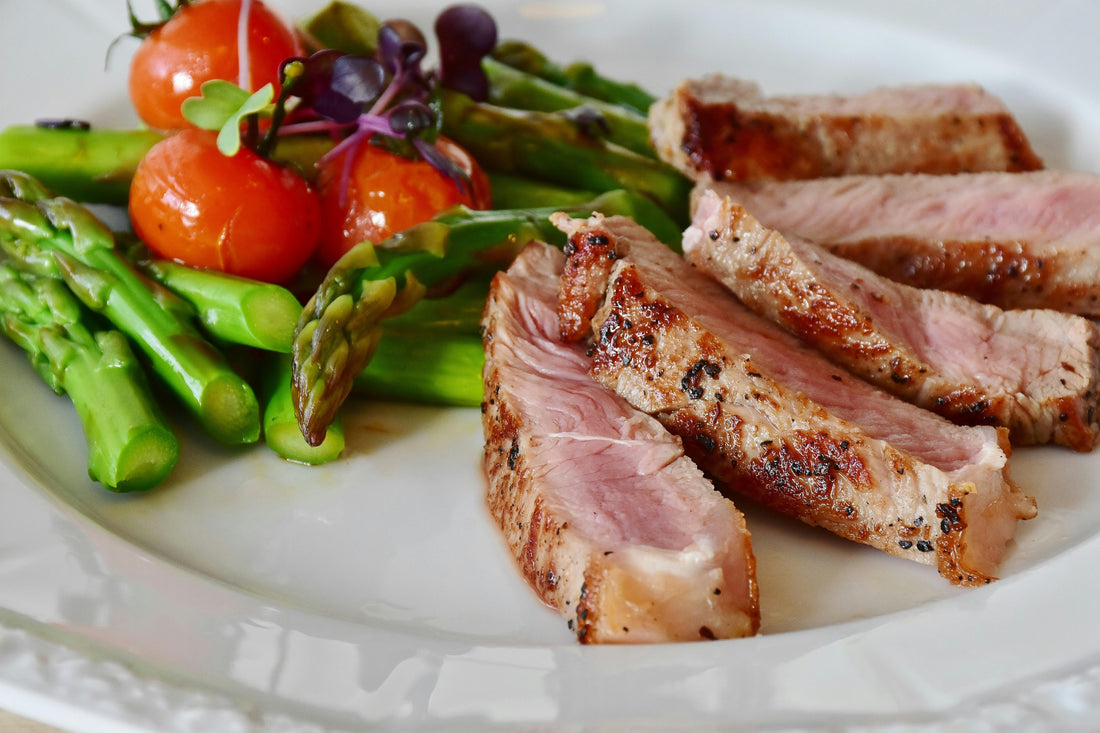
Some foods you should steer clear of during pregnancy
Foods to Avoid During Pregnancy: What’s Safe and What’s Not
During pregnancy, as your body works overtime to nourish your baby, what you eat becomes more important than ever. While a healthy, balanced diet is key, some foods should be avoided altogether. Let’s look at the foods you should steer clear of, some safe alternatives and the truth about fish while you’re pregnant.
Raw or Undercooked Meat
Eating raw or undercooked meat can expose you to harmful bacteria such as Listeria, Salmonella and E. coli, which can lead to food poisoning. These bacteria can cross the placenta and harm your developing baby, leading to complications including miscarriage.
What to have instead: Make sure that any meat you eat is thoroughly cooked until there is no pink inside. Use a meat thermometer to check the internal temperature has reached at least 160°F (71°C) for ground meats and 165°F (74°C) for poultry.
Unpasteurised Dairy Products
Unpasteurised milk and cheese (such as certain soft cheeses like Brie, Camembert and Roquefort) can contain Listeria. Listeria is a bacterium that poses a significant risk to pregnant women, potentially leading to severe infections or even miscarriage.
What to have instead: Opt for pasteurised dairy products. Most cheeses available in supermarkets are pasteurised, but it’s always best to check the label to be sure.
Raw or Undercooked Eggs
Like meat, raw or undercooked eggs may be contaminated with salmonella, which can cause food poisoning.
What to have instead: Make sure your eggs are thoroughly cooked until both the white and yolk are firm. If a recipe calls for raw eggs (such as mousse) make sure you use British Lion eggs or eggs produced under the Laid in Britain scheme, as these are less likely to have salmonella in them.
Caffeine
High levels of caffeine consumption during pregnancy have been linked to an increased risk of miscarriage and low birth weight. While it’s not necessary to cut out caffeine entirely, it’s important to limit how much you have.
What to have instead: Switch to decaffeinated coffee or tea, and limit your caffeine intake to 200 mg per day (about one 12-ounce cup of coffee). Herbal teas like ginger or peppermint can be a comforting and caffeine-free alternative.
The Truth About Fish During Pregnancy and Your Pregnancy Outcomes
One of the most common nutritional myths you may have heard is that all fish should be avoided during pregnancy. It’s true that you should steer clear of raw fish and high mercury varieties, but there’s no need to avoid fish entirely. In fact, many fish are a great source of omega-3 fatty acids, which are amazing, if not essential, for your baby’s brain development.
What to avoid: Avoid cold-smoked or cured fish as it could contain Listeria which can make your baby seriously ill. You should also avoid raw shellfish because they can have harmful bacteria, viruses or toxins in them, which can give you food poisoning. And cut out high mercury fish such as shark, marlin and swordfish.
What to limit: Limit tuna to a maximum of 4 medium cans a week. That’s because it has a higher mercury content compared to other fish - and too much mercury can be harmful to your baby.
What you can have: Enjoy low mercury fish and seafood as long as it’s cooked - cooking fish until it’s steaming hot will kill any bacteria that may be present.
The reality: Fish is a fantastic source of omega-3, which is crucial for your baby’s brain and eye development. Incorporating cooked, low mercury fish into your diet 2-3 times a week is a great way to support your baby’s growth while reducing potential risk. If you’re not a fan of the taste of fish, opt for a prenatal supplement that’s packed with omega-3 instead - like the ones from Nurture. All our supplements are thoroughly tested for toxins and metals to make sure they’re a completely safe source of nutrients for you and your baby.
Key Takeaways for a Healthy Pregnancy Diet
- Avoid: Raw or undercooked meats, unpasteurised dairy, raw eggs, high mercury fish varieties, raw fish and excessive caffeine.
- Choose: Fully cooked meats, pasteurised dairy products, thoroughly cooked eggs and cooked, low-mercury fish.
Nourish yourself and your baby with confidence, knowing that you’re making mindful choices that support both of you. To get started on your Nurture journey, take our food & lifestyle questionnaire and we'll send you a recommend supplement plan plus FREE blood test to track key nutrients and tailor your plan.